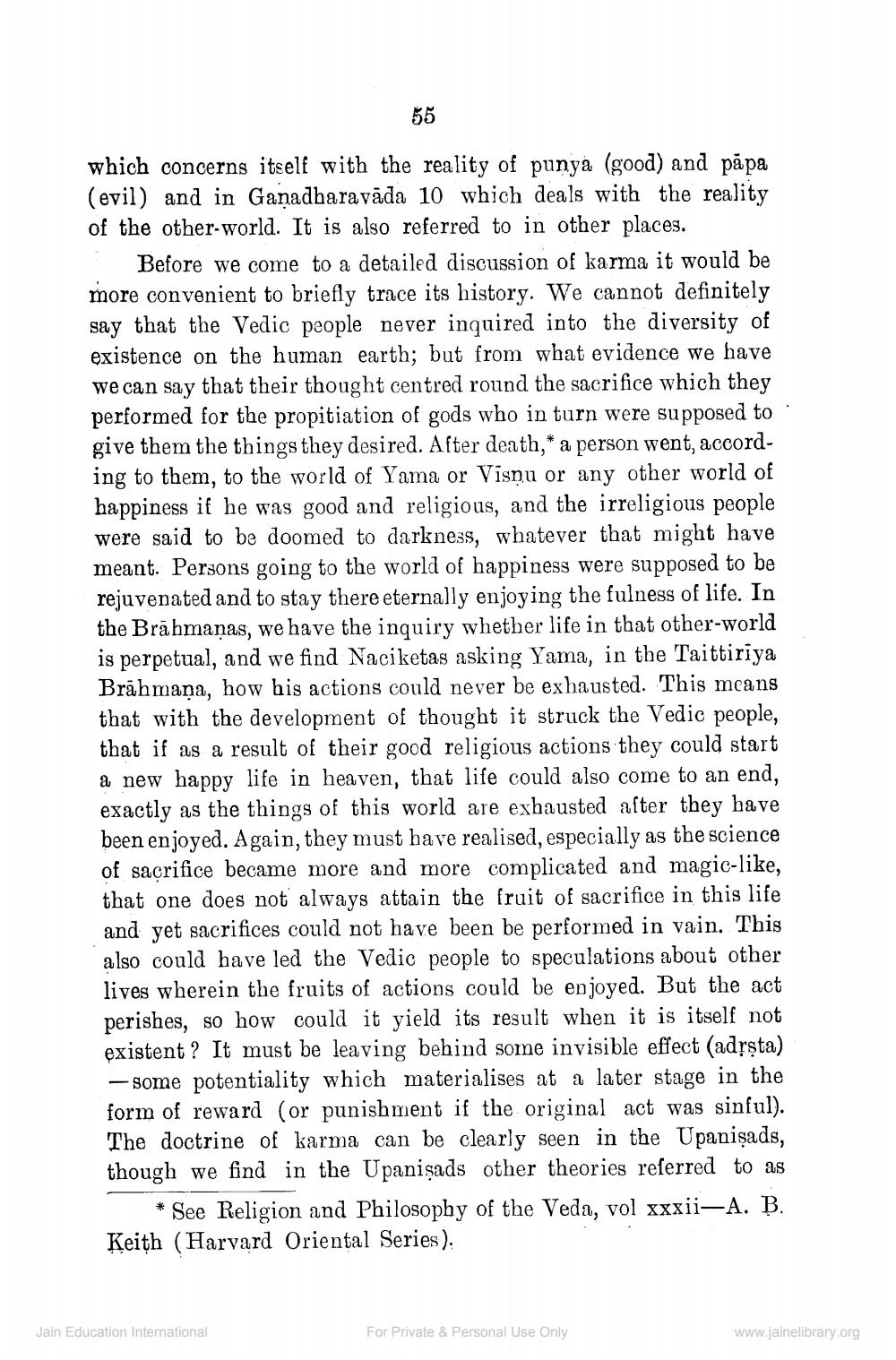________________
55
which concerns itself with the reality of punya (good) and papa (evil) and in Ganadharavada 10 which deals with the reality of the other-world. It is also referred to in other places.
Before we come to a detailed discussion of karma it would be more convenient to briefly trace its history. We cannot definitely say that the Vedic people never inquired into the diversity of existence on the human earth; but from what evidence we have we can say that their thought centred round the sacrifice which they performed for the propitiation of gods who in turn were supposed to give them the things they desired. After death,* a person went, according to them, to the world of Yama or Visnu or any other world of happiness if he was good and religious, and the irreligious people were said to be doomed to darkness, whatever that might have meant. Persons going to the world of happiness were supposed to be rejuvenated and to stay there eternally enjoying the fulness of life. In the Brahmanas, we have the inquiry whether life in that other-world is perpetual, and we find Naciketas asking Yama, in the Taittiriya Brahmana, how his actions could never be exhausted. This means that with the development of thought it struck the Vedic people, that if as a result of their good religious actions they could start a new happy life in heaven, that life could also come to an end, exactly as the things of this world are exhausted after they have been enjoyed. Again, they must have realised, especially as the science of sacrifice became more and more complicated and magic-like, that one does not always attain the fruit of sacrifice in this life and yet sacrifices could not have been be performed in vain. This also could have led the Vedic people to speculations about other lives wherein the fruits of actions could be enjoyed. But the act perishes, so how could it yield its result when it is itself not existent? It must be leaving behind some invisible effect (adṛṣta) -some potentiality which materialises at a later stage in the form of reward (or punishment if the original act was sinful). The doctrine of karma can be clearly seen in the Upanisads, though we find in the Upanisads other theories referred to as
*See Religion and Philosophy of the Veda, vol xxxii-A. B. Keith (Harvard Oriental Series).
Jain Education International
For Private & Personal Use Only
www.jainelibrary.org




